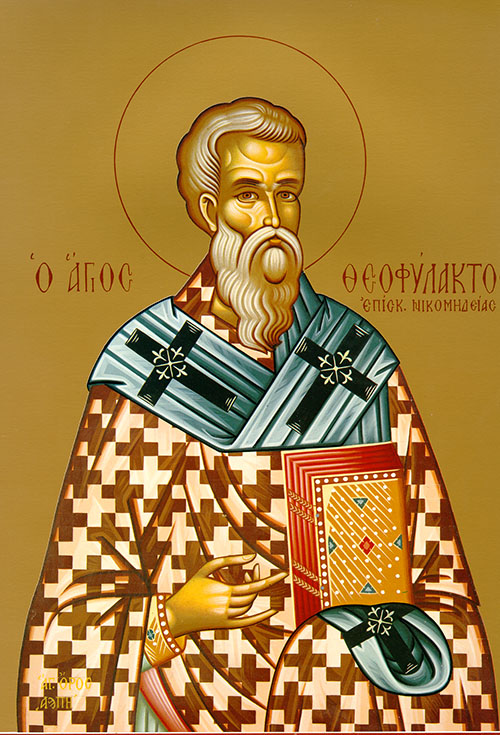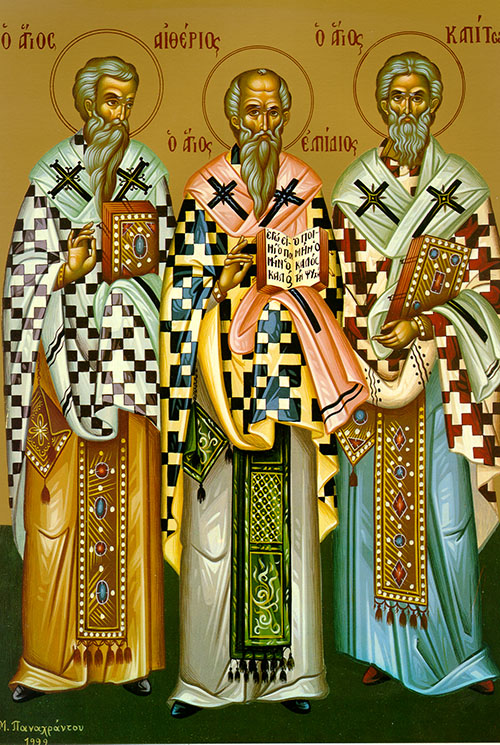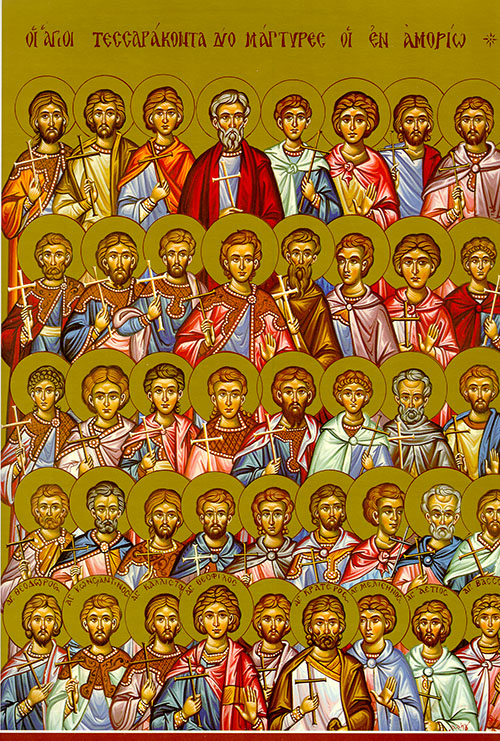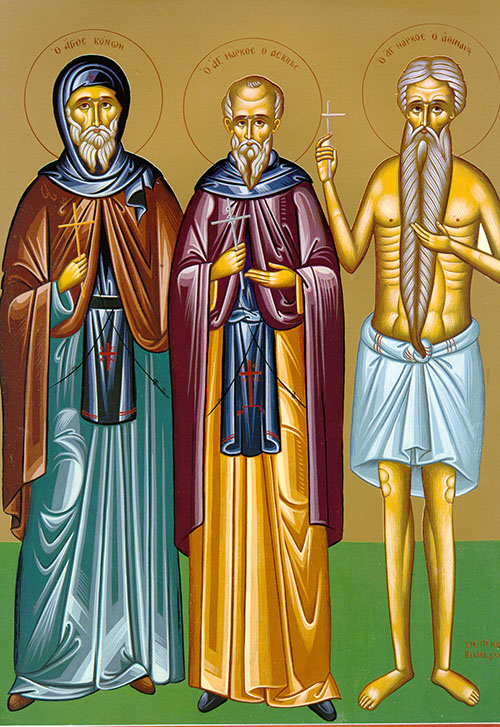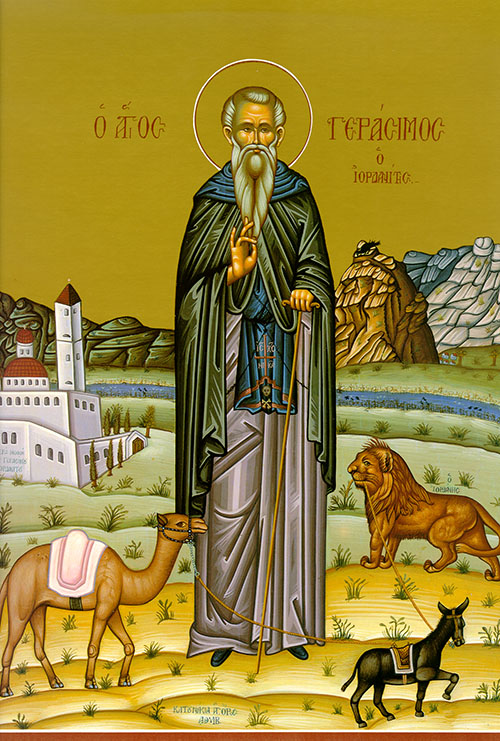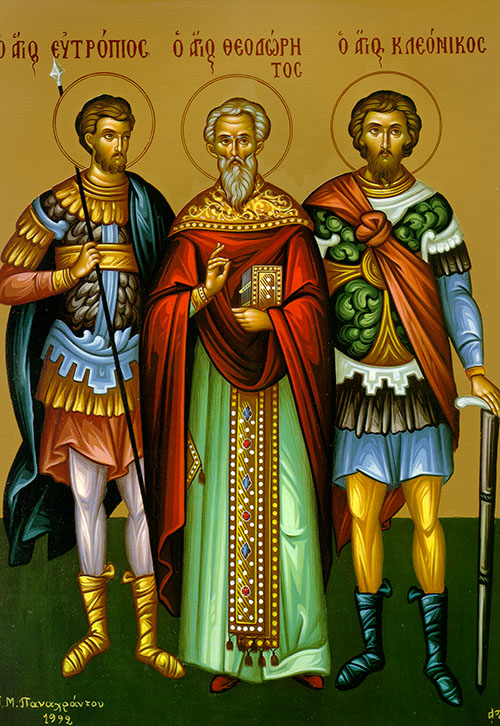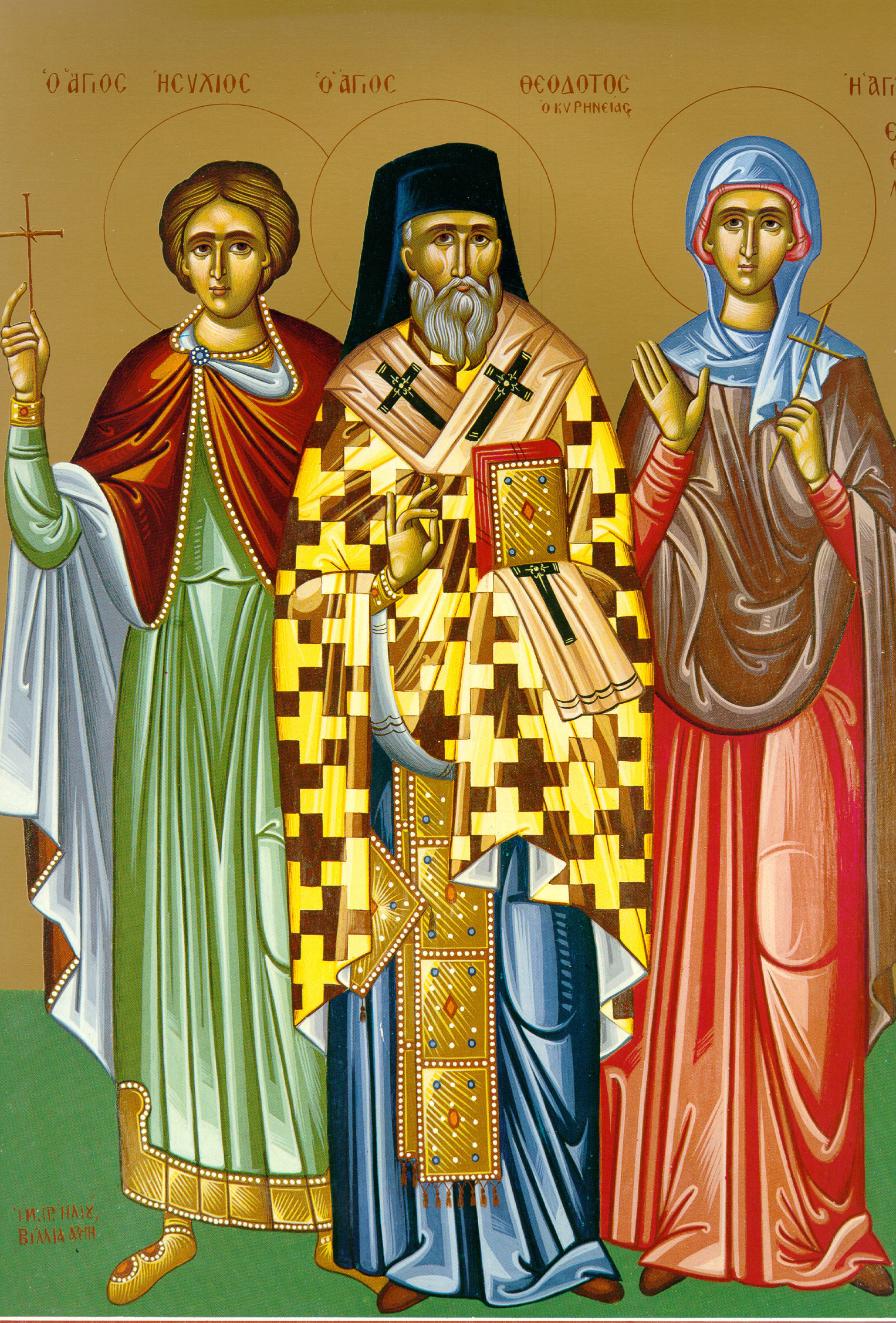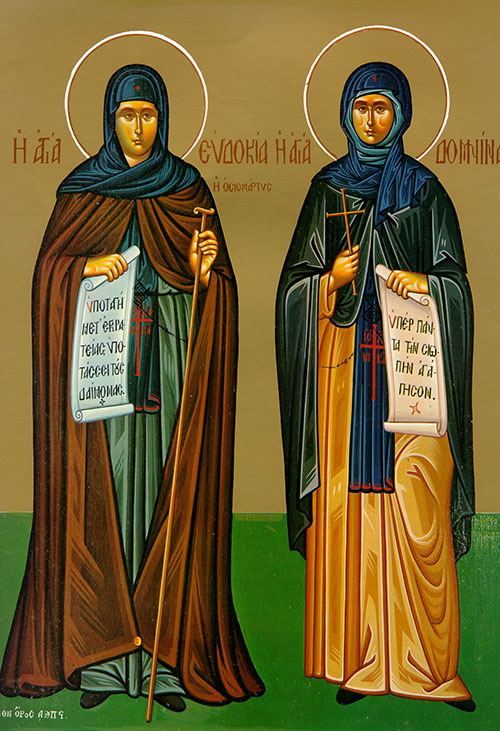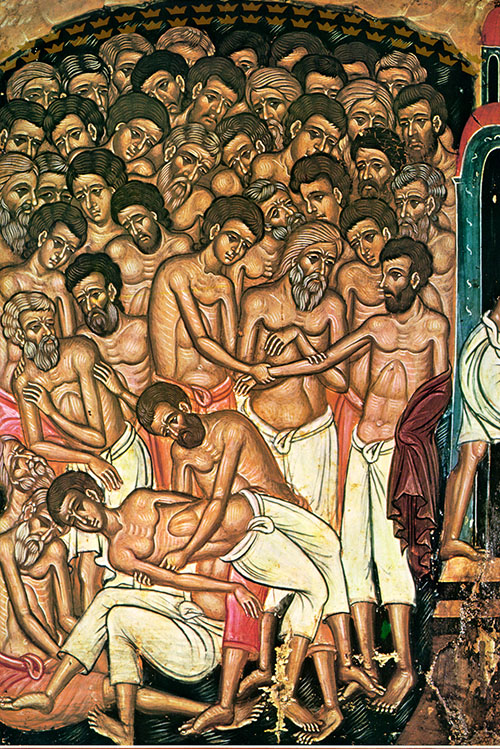

The forty holy martyrs, martyred at Sebaste in Armenia on a frozen lake. They were comrades , not in blood, but in faith and obedience to the will of their heavenly Father. At the time of the emperor Licinius, after binding and savage tortures, the martyrs were ordered to pass the night naked at the coldest time of winter in a swamp in the open air. They consummated their martyrdom by the breaking of their legs at crucifixion. The forty martyrs are: Cyrion(or Quirio), Candidus, Domnus, Hesychius, Heraclius, Smaragdus, Eunocius(or Eunicus), Valens, Vivianus, Claudius, Priscus, Theodulus, Eutychius, John, Xanthius, Helianus, Sisinius, Aggais, Aetius, Flavius, Acacius, Ecdicius, Lysimachus, Alexander, Elias, Gorgonius, Theophilus, Dometian, Gaius, Leontuis, Athanasius, Cyril, Sacerdon, Nicholas, Valerius, Philoctimon, Severian, Chudion, Aglaius, and Meliton.
Troparion
O forty soldiers of Christ and honorable martyrs, you went through fire and water, O mighty warriors, and have come to live with the angels. Join them in praying to Christ for those who praise you. Glory to Him who strengthened you! Glory to Him who crowned you! Glory to Him who heals us through you!
Kontakion
You left the crowds of this world and joined the Master in heaven, O forty martyrs. Passing through fire and water, you reaped glory and honor in heaven, O blessed saints.
Readings for the Saints
Epistle
Hebrews 12: 1-10
Brothers and sisters: Since we for our part are surrounded by this cloud of witnesses, let us lay aside every encumbrance of sin which clings to us and persevere in running the race which lies ahead; let us keep our eyes fixed on Jesus, who inspires and perfects our faith. For the sake of the joy which lay before him he endured the cross, heedless of its shame. He has taken his seat at the right of the throne of God. Remember how he endures the opposition of sinners; hence do not grow despondent or abandon the struggle. In your fight against sin you have not yet resisted to the point of shedding blood. Moreover, you have forgotten the encouraging words addressed to you as sons: “My sons, do not disdain the discipline of the Lord nor lose heart when he reproves you; for whom the Lord loves, he disciplines; he scourges every son he receives.” Endure your trials as the disciples of God, who deals with you as sons. For what son is there whom his father does not discipline? If you do not know the discipline of sons, you are not sons but bastards. If we respected our earthly fathers who corrected us, should we not all the more submit to the Father of spirits, and live? They disciplined us as seemed right to them, to prepare us for the short span of mortal life; but God does so for our true profit, that we may share his holiness.
Gospel
Matthew 20: 1-16
The Lord told this parable: “The reign of God is like the case of the owner of an estate who went out at dawn to hire the workman for his vineyard. After reaching an agreement with them for the usual daily wage, he sent them out to his vineyard. He came out about midmorning and saw other men standing around the marketplace without work, so he said to them, ‘You too go along to my vineyard and I will pay you whatever is fair.’ At that they went away. He came out again around noon and did the same. Finally, going out in late afternoon he found others standing around. To these he said, ‘Why have you been standing here idle all day?’ ‘No one has hired us,’ they told him. He said, ‘You go to the vineyard too.’
When evening came the owner of the vineyard said to his foreman, ‘Call the workmen and give them their pay, but begin with the last group and end with the first.’ When those hired late in the afternoon came up they received a full day’s pay, and when the first group appeared they supposed they would get more; yet they received that same daily wage. Thereupon they complained to the owner, ‘This last group did only an hour’s work, but you have put them on the same basis as us who have worked a full day in the scorching heat.’ ‘My friend,’ he said to one in reply, ‘I do you no injustice. You agreed on the usual wage, did you not? Take your pay and go home. I intend to give this man who was hired last the same pay as you. I am free to do as I please with my money, am I not? Or are you envious because I am generous?’ Thus the last shall be first and the first shall be last.
Readings for the day
Epistle
Hebrews 6: 9-12
Brothers and sisters: Even though we speak in this way, we are persuaded of better things in your regard, things pointing to your salvation. God is not unjust; he will not forget your work and the love you have shown him by your service, past and present, to his holy people. Our desire is that each of you show the same zeal to the end, fully assured of that for which you hope. Do not grow lazy, but imitate those who, through faith and patience, are inheriting the promises.
Gospel
Mark 7: 31-37
At that time Jesus left the territory of Tyre and returned by way of Sidon to the Sea of Galilee, into the district of the Ten Cities. Some people brought him a deaf man who had a speech impediment and begged Jesus to lay his hand on him. Jesus took him off by himself away from the crowd. He put his fingers into the man’s ears and, spitting, touched the man’s tongue; then Jesus looked up to heaven and emitted a groan. He said to the man “Ephphathal!” (that is “Be opened!”) At once the man’s ears were opened; he was freed from the impediment, and began to speak plainly. Then Jesus enjoined them strictly not to tell anyone; but the more he ordered them not to, the more they proclaimed it. Their amazement went beyond all bounds and they said: “He has done everything well! He makes the deaf hear and the mute speak!”
Icon courtesy of Jack Figel, Eastern Christian Publications – ecpubs.com


